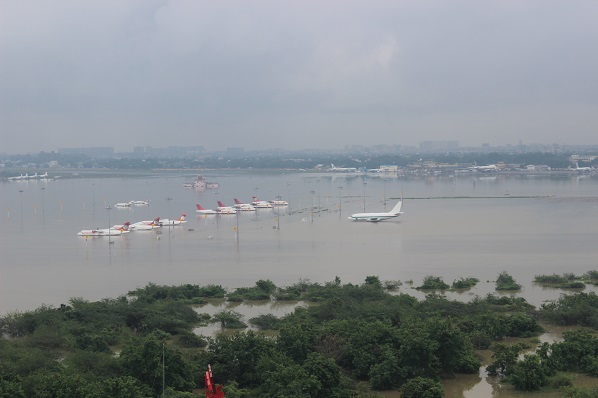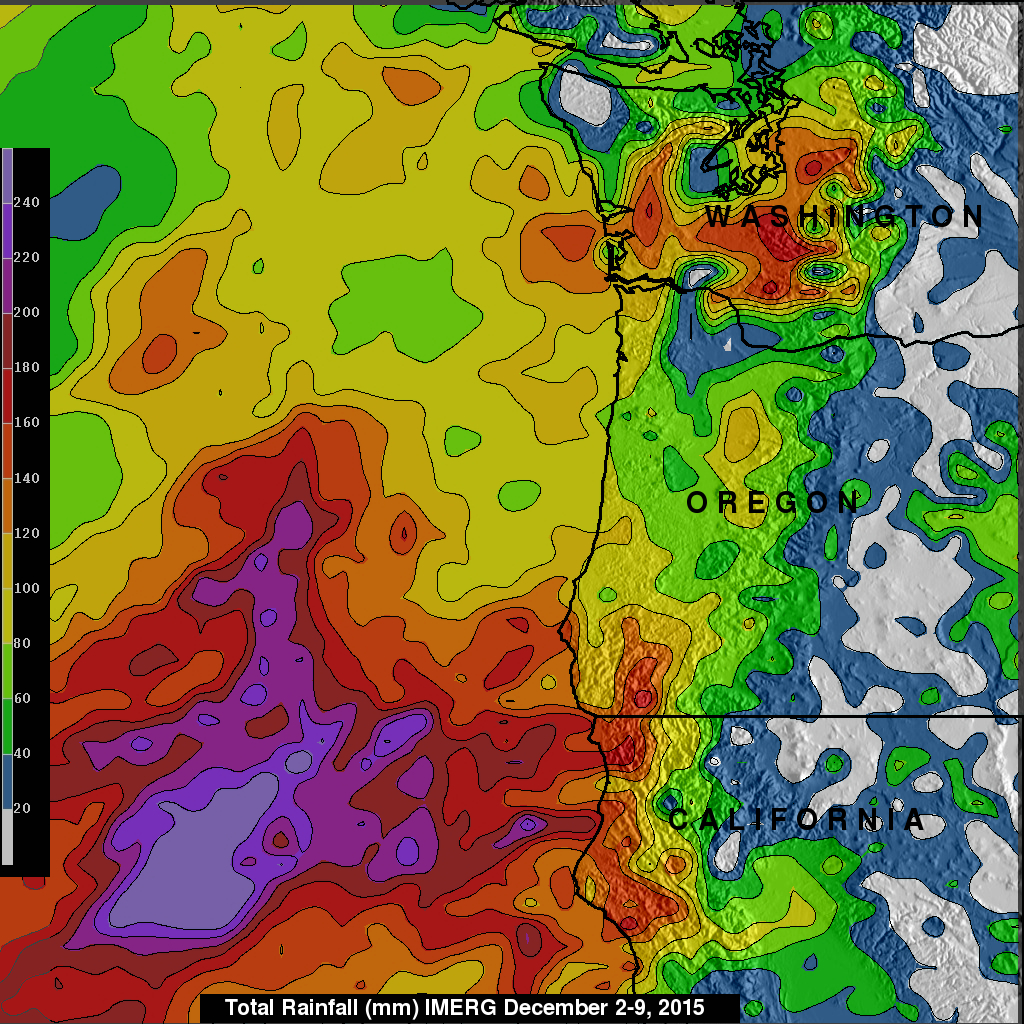

Aerial view of submerged planes at Chennai airport. Image Credit: Indian Air Force
While some places are experiencing severe drought, Portland, Oregon has just experienced its wettest calendar day in recorded history, and it is continuing to rain. Homes have been flooded and roads closed in Washington County. Across the pond, Scotland and North West England have been hit with high winds and unprecedented flooding, and they, too, are getting enough rain to bring more floods, brought by an "atmospheric river" of damp air. Flooding in Ireland is approaching critical levels, too and Norway has suffered historic floods, not long after it gave aid to Western Sahara flood victims.

Even worse hit has been Chennai in Southern India which had its heaviest rain in over a century last week, bringing the region to a standstill and killing at least 180 people. Colorado experienced historic rainfall and floods in September.
Whilst UKIP candidates blame Syrian refugees, it seems more likely that Prime Minister Modi of India is correct in blaming global warming.
As the global temperature increases, the oceans become warmer, and therefore more moisture evaporates into the atmosphere, which can hold more water vapor because it is warmer. This will lead to heavier precipitation. In other places, increased evaporation from soil and plants will contribute to greater drought.
Just as a short cold snap in the autumn does not mean that it is winter yet, or a couple of warm days early in the year mean that winter is over, it is hard to point at a single storm and say that it is due to global warming. Weather is local and is about what happens from day to day, but we look at averages from year to year and a variety of indicators such as temperature and nature to determine, often in retrospect, when the season has changed. Climate is about longer term averages or patterns, from decades to millennia, for the whole globe, not just one country or hemisphere. You can't just produce one snowball in one part of a country and declare that the average temperature is not higher than it used to be.
As Dr. Michael Mann, author of The Hockey Stick and the Climate Wars: Dispatches from the Front Lines, said on The Big Picture in November 2015...
But climate is more than just the seasonal changes in temperature and rainfall patterns, it's the longer term changes due to things like El Niño events, due to natural factors like volcanoes and small but measurable changes in solar output, and of course due to human impacts, due to the increase in the concentration of these greenhouse gases from fossil fuel burning and other human activities.
So, what we know is that heat waves are becoming more common and will become more common and they'll become more intense. Hurricanes will become stronger. Sea level will continue to rise. We will see longer and more intense droughts over large parts of North America and other continents, and so on. Those are changes in the average statistics of the weather, and we know how they are going to change with some degree of confidence...
So it is true that we are seeing extreme weather events that we think are being impacted by climate change and sometimes the connection is a bit non-intuitive. For example, the very cold winters we've had in some parts of the eastern U.S. in recent years are part of an unusual change in the track of the jet stream. And that same track of the jet stream that's been bringing some unusually cold air plunging southward into the eastern U.S. has instead been bringing all the storms and the moisture with them up into Alaska, away from California, and that's part of why we are seeing record drought in California right now.
So, for example, the UK can expect drier summers and wetter winters. The U.S. could be anything between 3°F and 12°F warmer by 2100, and some areas will get heavier rain or snow, though others will see less or no change. As the ocean warms, there will be more Category 4 and 5 hurricanes.
Check out how much rain or snow there has been in your part of the world with NASA's animated global map of rainfall and snowfall and other cool visualizations.
Related...
Transcript/video: Understanding Climate Change: A Conversation with Michael Mann - 10 November '15
Article: Our scorched Earth in 2100: Nasa maps reveal how climate change will cause temperatures to soar - Richard Gray
Article: Future Climate Change - EPA
Article: The consequences of climate change - NASA
Article: Six graphics that explain climate change - BBC
Article: Five ways climate change could affect the UK - BBC
Article: NASA Releases First Global Rainfall and Snowfall Map from New Mission - NASA



